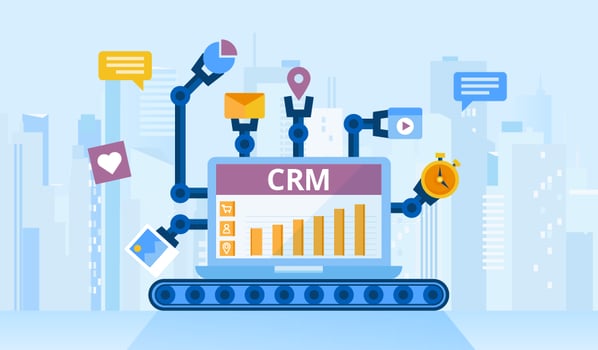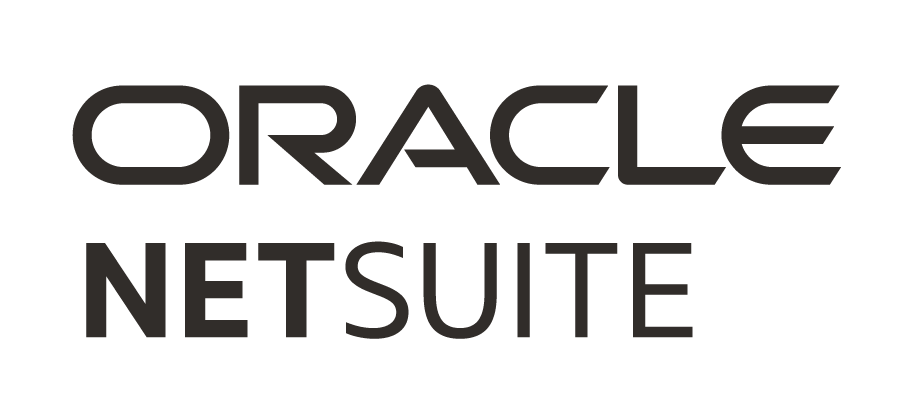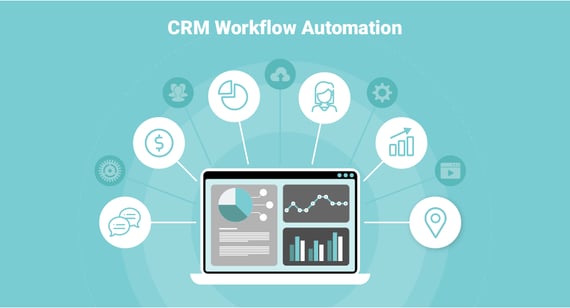What is a CRM Workflow?
CRM system is your main plan for managing customer relationships. A CRM workflow takes that plan and puts it into action with a carefully planned sequence of steps. These steps kick in within a CRM system when specific conditions are met, all aiming to help you reach a specific goal.
What makes this approach so fantastic is that it provides a bird's-eye view of the entire process, letting you keep tabs on progress. Essentially, with a CRM workflow, you know about every step needed to seal the deal, and you also get insights on when to check off certain tasks from your to-do list.
While some CRM workflows may still exist as diagrams or charts, the majority are embedded in CRM software, forming the foundation for the efficient completion of business processes.
Here, you can choose the most suitable for your needs CRM software:

Fireberry
By using Fireberry, you can easily manage all your business needs with a user-friendly system. Your unique business deserves a platform built just for you, so you can maximize your time and productivity where it matters most.
-Mar-27-2024-01-01-45-5252-PM.png)
monday sales CRM
Let monday sales CRM do the grunt work while your team stays focused on high-level tasks, such as creative projects, business strategy, and relationship building.
-Mar-27-2024-01-30-16-9529-PM.png)
Pipedrive
Pipedrive CRM is a user-friendly platform that is effortless to master. It is the creative web designer's secret weapon in the world of Customer Relationship Management.
-Mar-27-2024-01-30-18-9329-PM.png)
Salesforce
Salesforce is an industry leader known for its mammoth feature set and endless customization options. The platform can adapt to any industry, from manufacturing to insurance.
The Advantages of CRM Workflow Automation
Boosting productivity, enhancing efficiency, and minimizing reliance on human resources – are the basics of CRM workflow automation. But there are more benefits!
- Fewer Mistakes: Say goodbye to human errors in repetitive tasks. CRM with workflow automation practically minimizes slip-ups, whether it's minor transcription errors to forgetting to reach out to a customer.
- Increased Productivity: Those repetitive tasks not only invite errors but also slow you down. Let CRM workflow automation handle the routine stuff, freeing up your time and energy for more critical, thought-provoking, and creative activities.
- Enhanced Transparency and Accountability: Managing tasks in big or medium-sized teams can be a puzzle. CRM workflow automation tools offer a clear view of task completion, and team members get automated notifications, reminders, and triggers, keeping them in the loop and fostering top-notch performance.
- Improved Customer Connections: Juggling numerous customer profiles? CRM workflow automation steps in, ensuring you engage with them automatically, at the right moment, throughout the entire customer journey.
- Happier Workdays: Less mundane, repetitive tasks mean happier team members. Give your team the gift of time, letting them focus on the more important and creative aspects of their jobs.
- Reduced Costs: Cut inefficiencies, and save money. CRM workflow automation lets companies redirect funds to product development, marketing campaigns, and more.
- Scalability Boost: Create consistent processes with CRM workflow automation, freeing you up to reach more customers and grow your business.
[Related article: Automating Workflows in Monday.com: 6 ways]
How CRM Streamlines Workflows
Imagine your customer relationship management (CRM) software as the hub for all your company's potential customer contacts moving through various stages of the sales journey. At each stage, your sales reps need to interact with these prospects, guiding them to the next phase until they become loyal customers.
As your sales leaders juggle numerous opportunities, things can quickly become overwhelming. This can lead to missed opportunities, with prospects slipping through the cracks and losing interest in your offerings. Let CRM workflows help you!
CRM software can tailor workflow processes for large sales teams through if-then sequences. These sequences automatically execute tasks when specific actions precede them.
For instance:
- A deal is initiated.
- A prospect engages with an outreach email.
- A deal is assigned to a Sales Development Representative (SDR).
- A record field value changes.
- A deal successfully closes.
- A prospect remains inactive for a certain number of days.
- A prospect meets specific lead scoring criteria.
By automating these processes, CRM workflows ensure that crucial tasks are completed seamlessly, preventing quality leads from slipping away and keeping your prospects engaged throughout their journey.
What workflow types can CRM automate?

CRM software is a powerful tool for automating various tasks, including:
- Email Marketing: When a customer joins your email list, CRM can set up an automated workflow to send a welcome email, conveying gratitude and setting expectations for future communications. Internal actions, such as creating a CRM file and assigning an appropriate lead score, can also be seamlessly handled within this workflow.
- Lead Scoring: Implementing a lead scoring system becomes a breeze with CRM automation. In the email newsletter example, CRM can assign a score to a lead upon list signup. Moreover, the system can continuously score leads based on their actions in the sales funnel, identifying valuable opportunities for your sales team.
- Drip Marketing: CRM facilitates automated drip marketing campaigns, where customers receive a series of nurturing emails to guide them through the sales funnel. CRM workflows can be configured to score leads based on their engagement with the drip campaign, ensuring a targeted and effective approach.
- Lead Generation: Before launching a drip campaign, you need qualified leads. CRM workflows can handle lead generation by tagging potential leads whenever individuals respond to your company's calls to action. This ensures a steady influx of targetable leads for your marketing efforts.
- Lead Alerts: CRM workflows become your proactive assistant by alerting the sales department when leads meeting specific criteria enter the database. These workflows can also notify managers of critical changes or prompt urgent follow-ups, ensuring your team stays on top of promising opportunities.
- Account Management: Keep tabs on client contracts effortlessly. Set up workflows that alert you when contracts are nearing expiration, signaling the need for renewal or renegotiation. For simpler contracts, automate renewal emails either as one-time alerts or recurring notifications.
- Reporting: Use the power of your CRM's reporting features with automated workflows. Whether it's sales metrics, customer interactions, or any other type of report, your CRM can generate and send them automatically, saving you time and ensuring you're always in the loop.
- Call Logging: Streamline call and client management with CRM workflows. In platforms like Zoho CRM, missed calls don't go unnoticed. Users can set up workflows that automatically generate callback tasks for unanswered calls, ensuring no opportunity slips through the cracks.
- Customer Service: Elevate your customer service game with CRM workflows. Automate the completion of help tickets, sending customer service emails, flagging customers for personalized follow-ups, and alerting the relevant support representatives. These workflows can also handle issue escalation, de-escalation, or timely closure of help tickets.
Your Robust CRM Choice

4.3
CRM Workflow Creation
Now that you know how diverse and valuable CRM workflows can be, here are some steps to take to create them:
1. Identify the processes suitable for CRM workflows.
Don't automate everything—focus on high-funnel tasks that benefit most from automation. Tasks at the early stages of the sales cycle are ideal candidates, while processes requiring human interaction are better left untouched. Seek input from your sales, marketing, and customer service teams to pinpoint which CRM workflows enhance or impede their work.
2. Configure your workflows effortlessly.
In most CRMs, creating workflows follows a simple process:
- Open your workflow creation tool and initiate a new workflow with a meaningful name.
- Assign the workflow to individuals or departments—utilize templates provided by your CRM to kick-start the process.
- Define the trigger for the workflow.
- Specify the actions triggered by the workflow.
- Save and activate your workflow.
This quick process takes just a few minutes, and the beauty of CRM workflows lies in their flexibility—adjust them as needed.
3. Put your workflows into action and continually assess.
Once your CRM with workflow management is in place, observe its impact on your team's goals. Regularly test workflows to identify any shortcomings and refine them as necessary. Actively running, testing, and revising workflows is essential for maximizing the effectiveness of your CRM system.
4. Inform your teams about workflow changes.
Imagine discovering that, despite automating your help ticketing process, your team is still grappling with prolonged ticket resolutions. In such cases, it's crucial to communicate any adjustments made to your CRM workflows directly to your team, addressing the issue or reverting ticketing to a manual task if needed. Transparency is key—never implement workflow changes without informing your teams. This ensures that employees are aware of any modifications and prevents confusion when certain actions no longer align with your workflows.
Additionally, sharing workflow changes opens the door to valuable employee feedback. Team members who sense potential challenges arising from these changes often provide insights. Leverage this feedback to shape future workflow strategies and foster collaboration among your teams.
5. Embrace only universally successful workflows.
Not all CRM workflows fit every team seamlessly. Avoid using workflows that benefit one team but pose challenges for another. Instead, collaborate with your teams to identify solutions that cater to everyone's needs. Engage in conversations with different departments, such as sales and marketing, to understand what works well and what needs improvement.
Your teams' input is invaluable in crafting workflows that cater to diverse needs. Retain workflows that contribute positively to team performance and discard those that hinder progress. Embrace a continuous improvement mindset—revise, rerun, and retest workflows until they are finely tuned. Well-optimized workflows translate to streamlined operations, fostering a happier and more successful team.
[Related article: Efficiently Manage Projects with Top Workflow Management Software]
CRM Workflow Best Practices to Consider

Great CRM workflows are not created by just copying and pasting. Instead, they require a unique approach to your organization as well as adherence to best practices.
We've described a few of the best practices we believe will make the process a little less frightening and enhance the likelihood that your CRM and workflow management will be easy to use, time-saving, and a tool that will help you generate more money.
Understand what to look for in a CRM application
- User-Friendly Interface:
- Seek a CRM tool with an intuitive design that demands minimal technical expertise, ensuring a seamless user experience.
- Cross-Device Accessibility:
- Opt for a tool that offers accessibility from various devices, providing flexibility for your team to work efficiently anytime, anywhere.
- Tailored to Business Needs:
- Prioritize customizability, allowing the CRM tool to be tailored to the specific requirements of your business processes and workflows.
- Adaptability and Flexibility:
- Choose a CRM solution with the ability to adapt and evolve, ensuring it can accommodate changes in your business needs over time.
- Scalability for Growth:
- Select a CRM tool that supports scalability, enabling your business to grow seamlessly while maintaining consistent and efficient processes.
- Seamless Integration:
- Look for a CRM tool that seamlessly integrates with other essential work tools, fostering a cohesive and streamlined work environment.
- Custom Automation:
- Opt for a CRM tool that provides the capability to create custom automation tailored to diverse use cases within your unique workflow requirements.
- Comprehensive Support and Training:
- Ensure the CRM tool comes with robust customer support experience and training resources, empowering your team to make the most of the tool's capabilities.
Remember, this list can be expanded based on your specific needs. As you embark on your quest for efficient CRM solutions, consider adding additional features to create a comprehensive checklist. With a clear understanding of your requirements, navigating the plethora of options in the market becomes a straightforward process, allowing you to distinguish the effective tools from the less desirable ones. Keep your focus sharp, and you'll effortlessly identify the CRM solution that aligns perfectly with your business goals. 👀✨
[Related article: Best Customizable CRM Software: 10 Best Solutions for 2024]
Third-party apps integration
Explore the vast potential of third-party app integrations, and depending on your chosen CRM tool, leverage APIs and webhooks to synchronize information across systems. Fearlessly connect these integrations to streamline your work processes, minimizing distractions for yourself and your team.
Regularly review the workflow effectiveness
Despite creating the perfect workflow initially, changes in company dynamics or the market may necessitate updates. Conduct routine workflow audits to pinpoint the opportune moments for necessary adjustments.
During these audits, meticulously examine every aspect, from minor to major details. Identify and eliminate bottlenecks to ensure optimal workflow performance. Don't forget to seek feedback from your team—understanding how the workflow functions for them is key to refining and enhancing your processes. Regular reviews guarantee that your workflows remain agile, adapting seamlessly to the evolving needs of your business.
Final Thoughts on Optimizing Workflows
In the relentless pursuit of efficiency, optimizing workflows emerges as a cornerstone for sustained success. As we navigate the dynamic landscape of business relationships, it becomes evident that a one-size-fits-all approach doesn't suffice. Instead, a customized strategy, rooted in best practices, unleashes the true potential of workflow optimization.
Consider the vital role of a carefully chosen CRM tool—one that embodies user-friendly interfaces, scalability, and seamless integrations.
The synergy of third-party app integrations adds a layer of sophistication, enhancing the capabilities of your CRM tool. Fear not the complexities—embrace them, and witness how these integrations harmonize disparate systems, elevating your workflow to newfound efficiency.
Yet, perfection is transient, and workflows are no exception. Regular audits, marked by a discerning eye and open communication with your team, unveil areas ripe for improvement. It's an iterative process, a commitment to perpetual refinement in the face of organizational evolution.
As the curtain falls on the quest for optimized workflows, the takeaway is clear: it's not just about achieving efficiency; it's about sustaining it. Embrace change, adapt, and watch as your workflows evolve into a symphony of seamless productivity.


